KOYOMI – Local Life & Crafts
KOYOMI Local Life & Crafts
Machiya Club Flagship Store
Enjoy a collection of local handcraft from Omihachiman & the Koto Region
KOYOMI – LOCAL LIFE AND CRAFTS is the flagship store of MACHIYA CLUB, housed in a renovated building that was once a dormitory for kurabito, or skilled labor, of the historical sake brewery. It is located within the same building complex as our hotel, to the west of the hotel’s Omi-no-ma guest room.
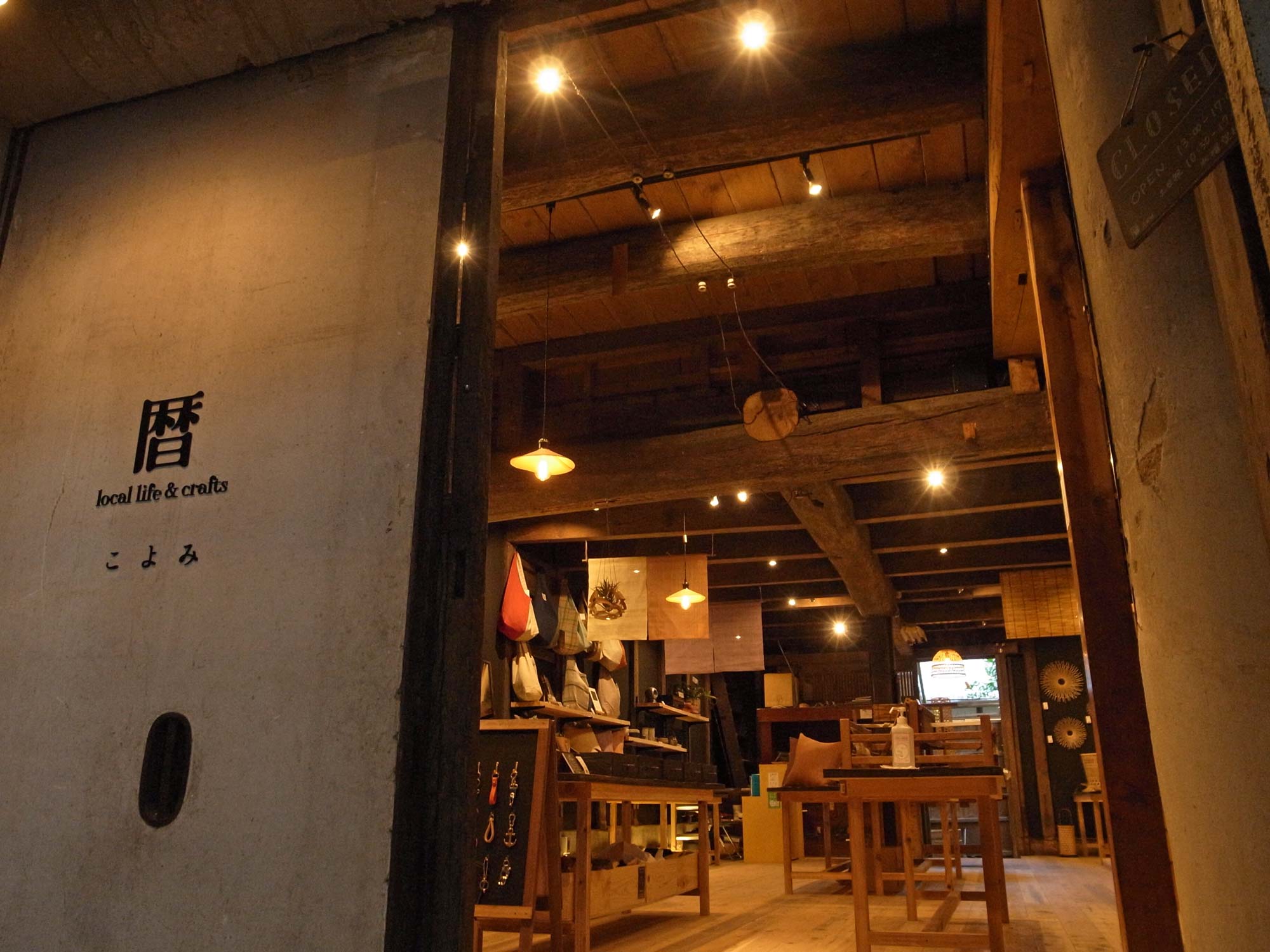
The name, “Local Life & Crafts,” reflects our hope that this becomes a center for sharing our great heritage by presenting contemporary pieces that embrace traditional craftsmanship, while pairing it with modern aesthetics.
The shop displays and sells items handcrafted from local materials like reed, bamboo, linen, leather, and sailcloth.
We hope this space allows guests to experience all the charms of Omihachiman. With additional events like hands-on workshops and live concerts, we hope to showcase our local area to wider audiences.
KOYOMI – Local Life & Crafts
On the premises of MACHIYA CLUB 21 Suwaichonaka, Omihachiman City
Phone: 0748-32-4654
Hours: 10:30 am – 5 pm (weekdays) / 1:30 – 5 pm (weekends & holidays) Closed: Tue
*shop may open at other extended hours upon request by hotel guests.
Product Details
Collaborating with local craftsmen and makers, we offer new products designed for contemporary living. Below are some examples of what you will find in our shop.
*May include out-of-stock or discontinued items. Please contact us for more information.*Some of the following products are on display in our accommodation areas. Please find and enjoy during your stay.
Omi Beef Leather X Takashima Sailcloth
Omihachiman is a major producer of leather products, such as the well-known Hachiman Gutsu (Hachiman Shoes). Yet, the area is also known to be the first place in Japan to start producing western style sailcloth, as 16 power looms were imported to the area from the UK. The heritage of such skills, tradition, and pioneering spirit made possible the inception of COGOCORO, a leather shop and producer of Hachiman Sailcloth bags.
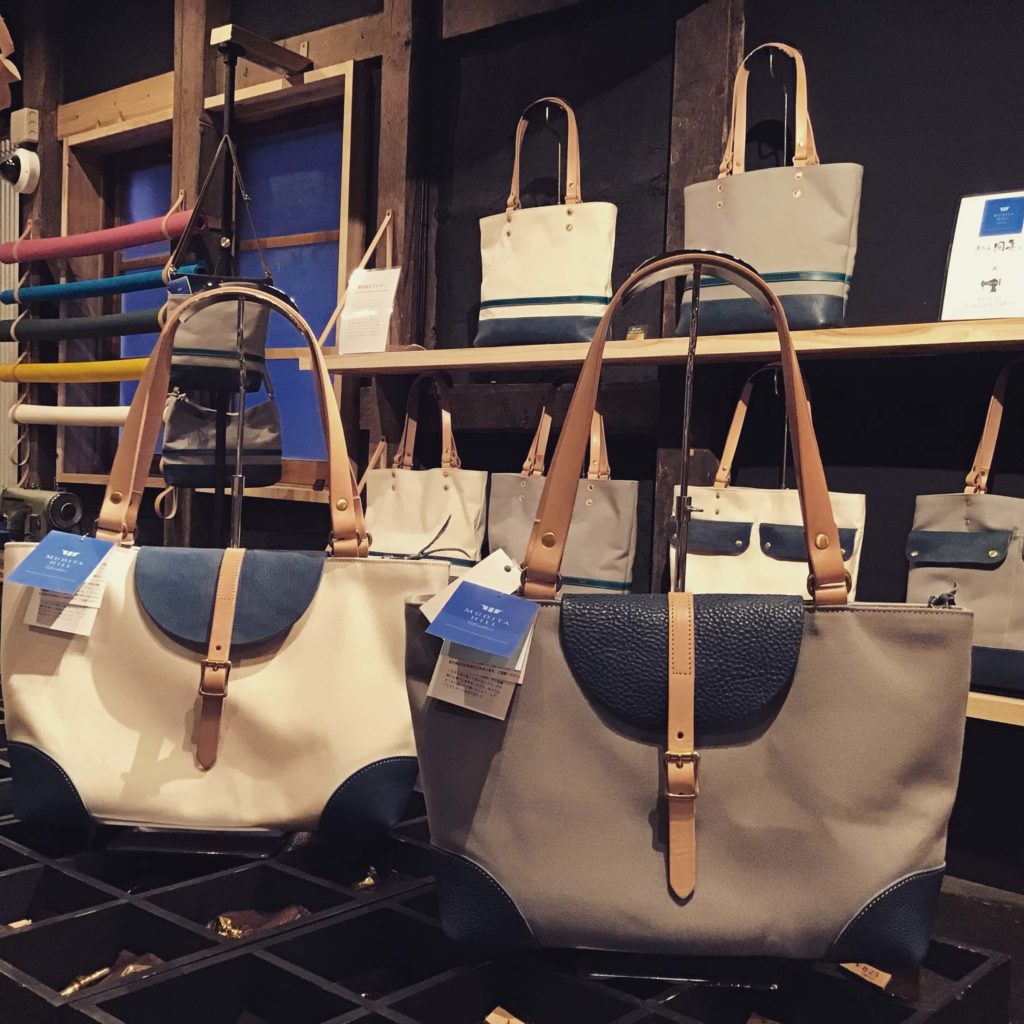
These singularly unique products are made possible by the collaboration between COGOCORO and Okaki Ranch, a long-established producer of Omi Beef.
These pieces shine with the thick, luxuriously soft and smooth texture of Omi Beef. And the vivid Biwako Blue hue adds the perfect accent to this classic yet modern design. In addition to bags, we also display small items such as purses, key cases, and more.
Omi Linen
Shiga’s Koto Region is blessed with abundant nature like the clear waters of the Echigawa River and the thick fog that rolls down from the Suzuka Mountains. The moisture-rich climate here is perfect for creating a variety of quality linen textiles, which in fact, became a major industry of the area. Among them, the high quality Omi-Jofu linen has been a particular stand out, and was designated as a national traditional craft of Japan.
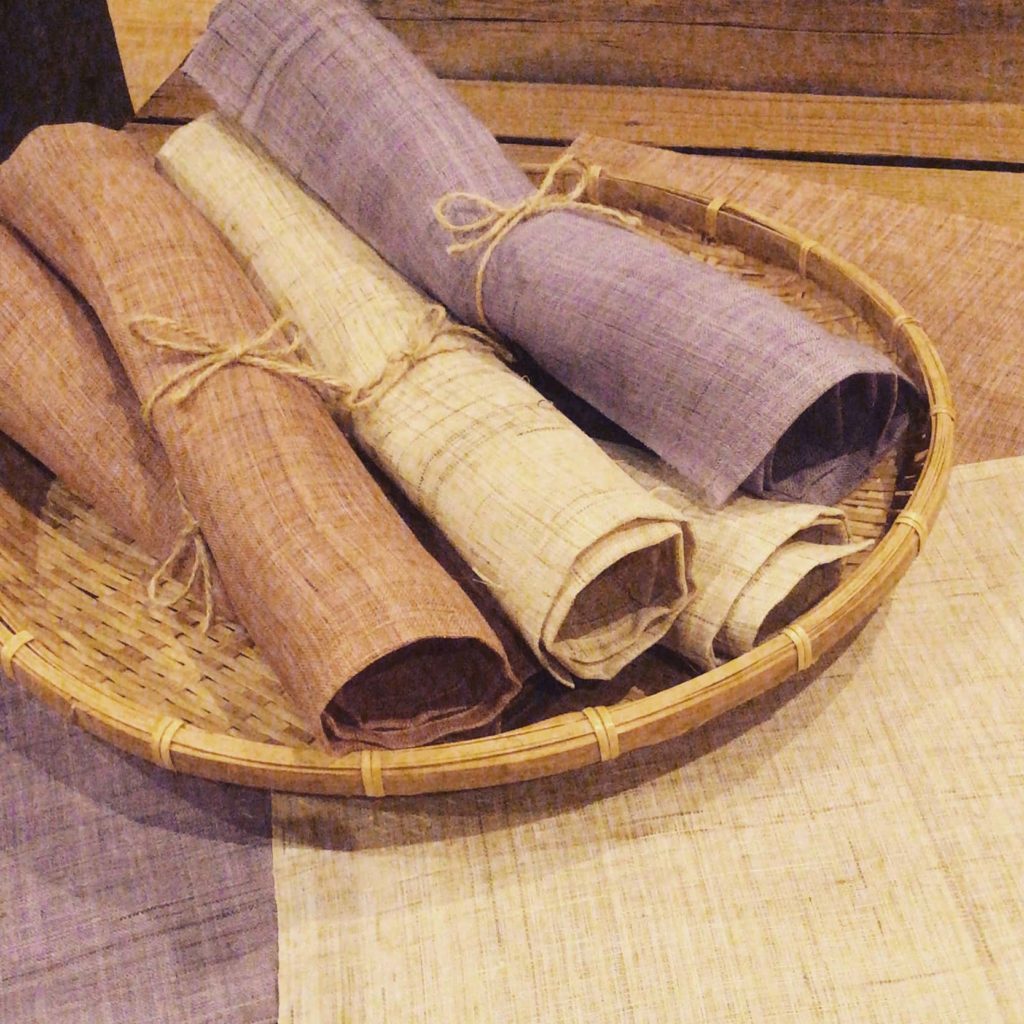
We showcase linen products, such as place mats and cushion covers by Kawaguchi Orimono (orimono means “fabric”), a producer of various linens, including Omi-Jofu. The linen thread is spun with strands of natural hemp, peeled manually from the stalk, which makes for a warm and natural fabric texture.
Handwash safe. Enrich your life with these functional, high-quality linen products.
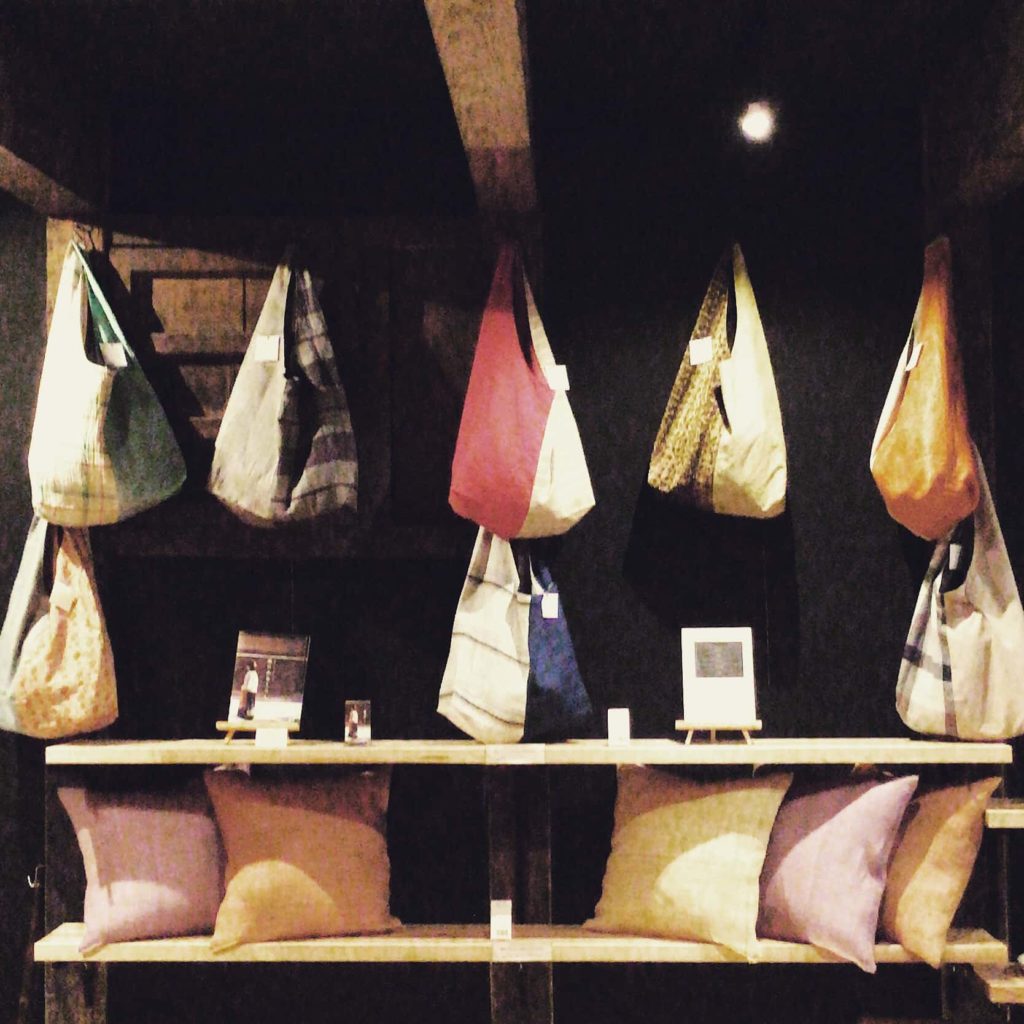
Linen makers of the Koto Region work on collaborative projects to produce new works that respect tradition while adding a contemporary touch. The reusable shopping bags in the photo are created from such collaborative efforts; reusing garment scraps from each maker, matching linen with other types of fabric such as cotton, rayon, wool, and silk, to make beautiful pieces.
No two pieces are the same; each has a unique matching of fabrics. Some are even reversible, with different fabrics and colors on the inside. Enjoy another design just by reversing it!
Reeds from Lake Biwa and Lake Nishinoko
Wild reeds around the shores of Lake Biwa and Lake Nishinoko have a been precious natural resource in this area for ages. Every year, people harvest them and burn the land in order to keep the soil fertile for the following year’s reeds to grow. This cycle is also very important to help maintain the lakes’ ecosystems. Cut stalks are used to make hanging shade blinds, called sudare, or shades standing against a wall, called yoshizu. Thatched roofs of traditional Japanese farmhouses are also made from this material. These items have been invaluable to life in Japan, and thus the crafting of reed products has become a major industry in Omihachiman.
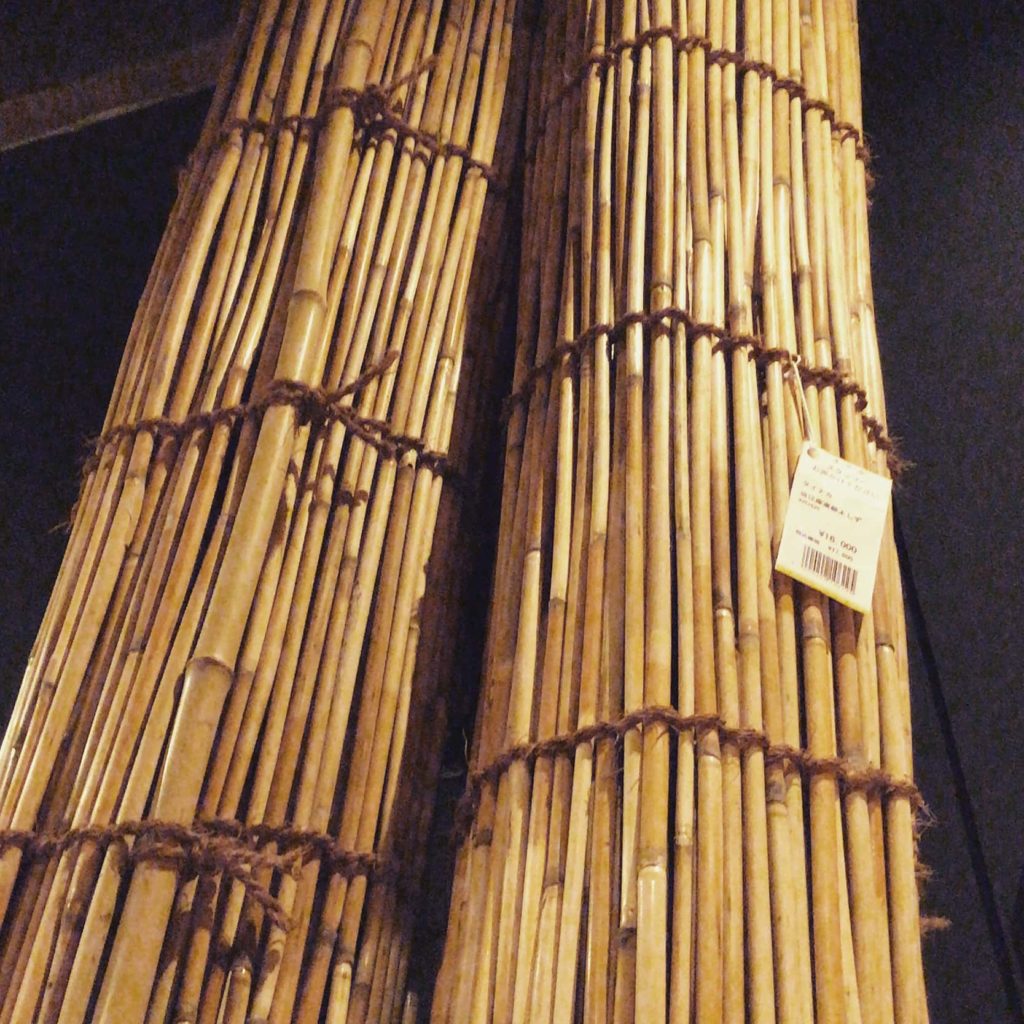
Unfortunately, the industry has downsized dramatically due to the large increase of competition from foreign products in today’s market. However, the high quality has maintained some demand from prestigious places such as high-end restaurants and state guest houses. Omihachiman reed products have established a well-deserved place at the top of this market.
See and feel this genuine, traditional local craftwork here in our shop, and you will understand the level of quality that our local environment has nurtured.
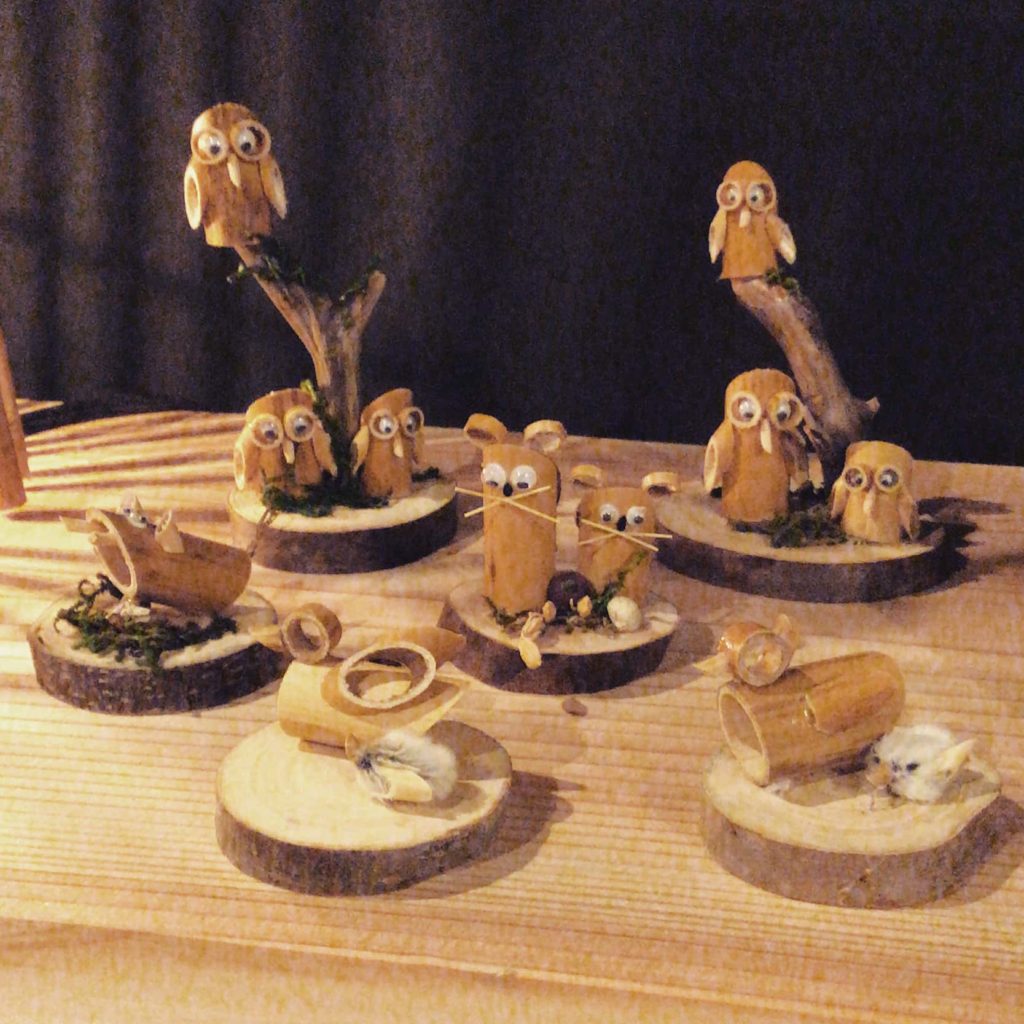
To fight against the decline of this industry, local groups have formed to protect the ecosystem where these plants have thrived, and preserve it for the next generation.
Such groups have worked on various projects. From the group, Yoshi-no-tsukaimichi-wo-kangaeru-kai (ヨシの使い道を考える会), we exhibit some works crafted by member artists. The photo shows cute animals such as owls made of thick reed stalks. New items using reed to make paper and cloth will also be featured in our shop.
Bamboo Work of Omihachiman
Besides reed, bamboo is another major handcraft material used historically in Omihachiman. This area is blessed with a wealth of natural bamboo thanks to numerous bamboo groves along our river banks. Using such resources, bamboo work has also become a major industry of Omihachiman, resulting in many local bamboo craftsmen. The bending technique of Omihachiman bamboo work is particularly significant, and is now designated as a Traditional Craft of Shiga Prefecture.
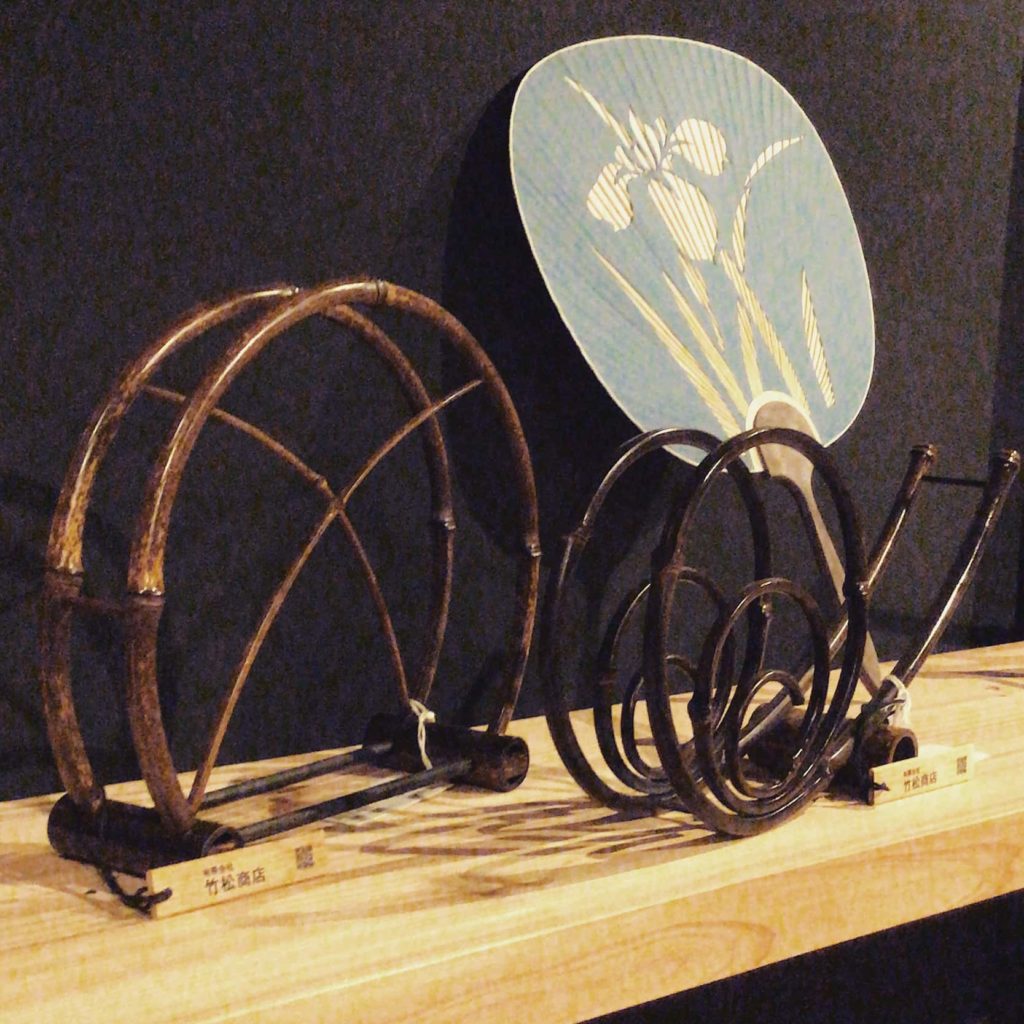
One example is an uchiwa fan bamboo stand. Because bamboo is hollow inside, except at the segment joints, it is extremely difficult to control temperature when working, thus demanding a tremendous level of skill and mastery for bamboo work. Notice the beautiful curve of the bamboo stand in the photo.
Other items of Takematsu Shoten are also available at our shop, such as flower stands, candy bowls, dish stands, and more.
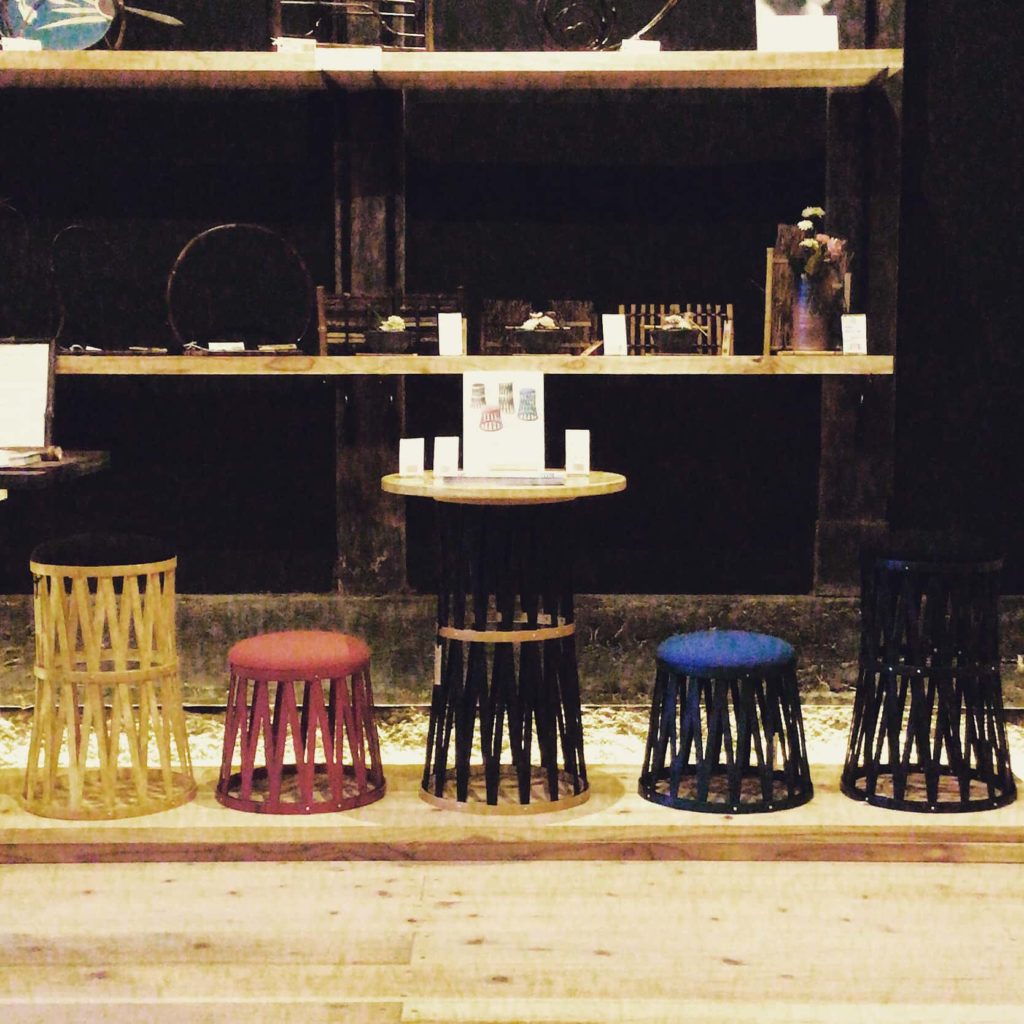
Their tables and stools have a much more contemporary aesthetic incorporated into the design. With names using the “B” from both bamboo and Biwako (Lake Biwa), these are called the “BB Stool” and “BB Table.”
These are made only with bamboo except for cushion part, so they’re very light, yet they can hold up to 400 kilograms! The flex of the bamboo material also offers nice natural cushioning for a wonderfully comfortable seat.